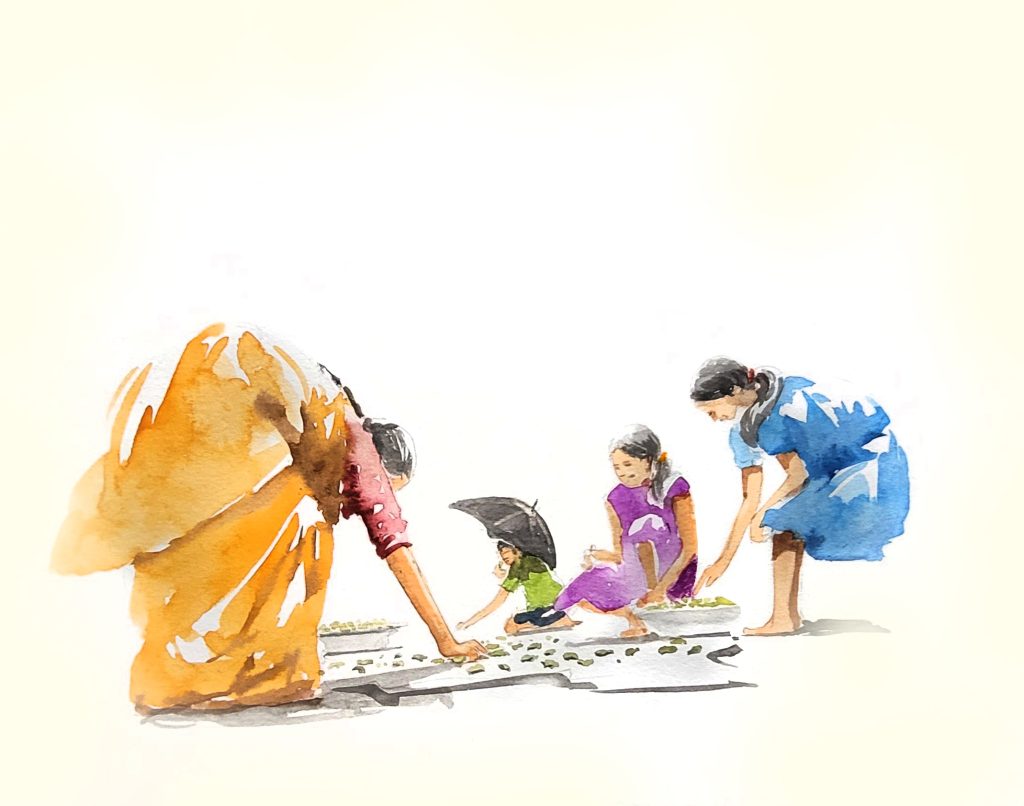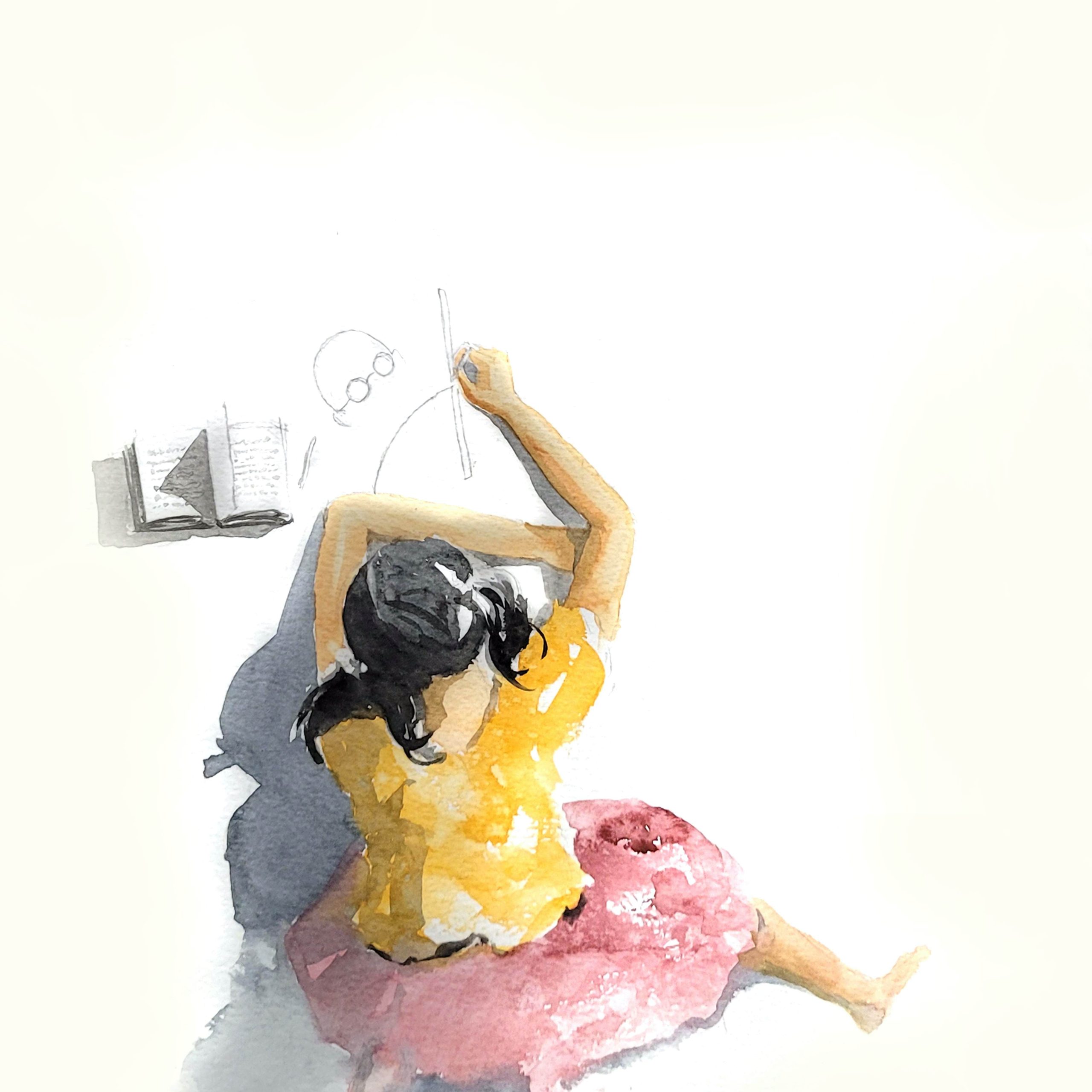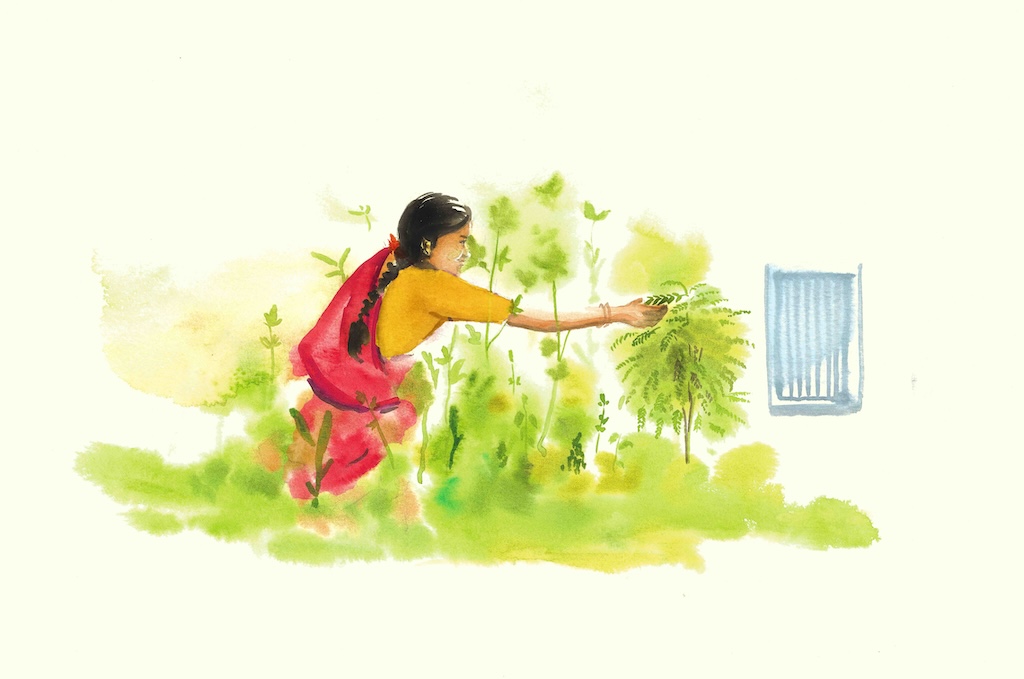
“It is so hot! ”, Karthik said, settling in a corner on the terrace with an umbrella.
“You could help Maitreyi dry the mango pieces over that side, Karthikeya. We all could go downstairs before it gets scorching hot”, I tried to convince him to help the rest as he sat chewing the marinated mango pieces.
Summer mornings like this with my grandchildren are a memory I always hold close to my heart. While Gargi and Maitreyi always enjoyed assisting me in the process of pickle making, Karthik and Shruti would follow us inquisitively asking questions or ranting about the hot weather.

“No, I am comfortable here Grandma. Honestly, these mangoes taste so juicy and delicious, why do we have to sun dry them?”, he asked, sharing a piece with Shruti.
“Because, Mangoes are not available throughout the year, Karthik. And to have them we should increase their shelf life”, replied Gargi.
“How will you increase the shelf life by drying them?” he asked, puzzled.
“With sun-drying, we could squeeze out the moisture and increase their shelf life. It also makes them perfect for pickling. And then, we could enjoy these pickles throughout the year!”, answered Gargi, with the little knowledge she gained by assisting me last year.
“Oh! come on Gargi, we can store them in the fridge without all this process? Can’t we?” asked Karthik, feeling proud of the solution he just found.
“Long time ago, people did not have refrigerators. To increase the longevity of seasonal food, manage food scarcity and carry food on very long journeys - they found these types of pickling processes.”, I explained to Karthikeya.
“How ancient is this process, Grandma? Did you have a refrigerator at your home in your childhood?'' Maitreyi got up curiously and sat next to me.
“No, we didn’t have one. And, the history of pickling is a long and interesting one. There are mentions of pickles in ancient Indian texts dating back to the 16th and 17th centuries. Cucumbers native to India are the first to be pickled in 2030 BC. And, pickling in India is thought to have started around 4000 years ago”, I replied.
Everyone looked amused by the history of pickling I just shared. Especially Shruti, she looked curious about every little detail.
“Are pickles only prepared by Indians?”, asked Shruti, quizzically.
“No, Shruti. In South Korea, people used to pickle cabbages, radishes and other vegetables, naming them Kimchi. The Japanese used to pickle Ginger calling it Gari. For a long time, pickles are part of various cultures and traditions. Throughout history and across the nations, pickling is a necessity to store food.”
By now, Gargi and Maitreyi completed drying their share of mango pieces. They began drying my share of mango pieces so that I could speak. All of them were engrossed in this unexpected storytime.
“The word 'pickle' comes from the Dutch word 'pekel' which means 'salt' or 'brine'. The word ‘Achar’ we presume to be Indian is actually of Persian origin”, I continued tapping their curious sides a little more.
“Haa! But Grandma, why is the name associated with the salt?”, asked Shruti.
“Shruti, all cultures follow a basic four-step process of pickling: collecting the best raw ingredients, Sun drying, adding spices and preserving. Preserving is the key and could be done in three ways: Preserving in vinegar, salt or in oil”.
“And, we preserve it in oil!! right Grandma??”, shouted Karthik in excitement.
“Yes, we do it in oil. Because oil prevents the spoilage of pickles. Bacteria cannot live in such an environment”, I replied.
“And, what spices or herbs do we usually add?”, asked Gargi.
“It depends on the pickle we are making. We could include cumin, mustard powder, a hint of garlic, hing and...”
“Red chilli powder for the spiciness!! right Grandma?”, interrupted Karthik.
“Hmm. Do you know Karthik that chillies were brought to India by the Portuguese at the end of the 16th century?”, I said smiling.
“But the process of pickling is 4000 years old!! what did we use back then??” asked everyone, surprised.
“Black Pepper! that was the lone source of spiciness”, I answered.
Everyone remained silent, lost in their own imaginations of the facts I just shared.
“Oo, this story on the history of pickling is so interesting! Summer mornings like these with you are the best Grandma!” Gargi hugged me happily as we all got up.
“Mine as well!”, I said, kissing her.



























